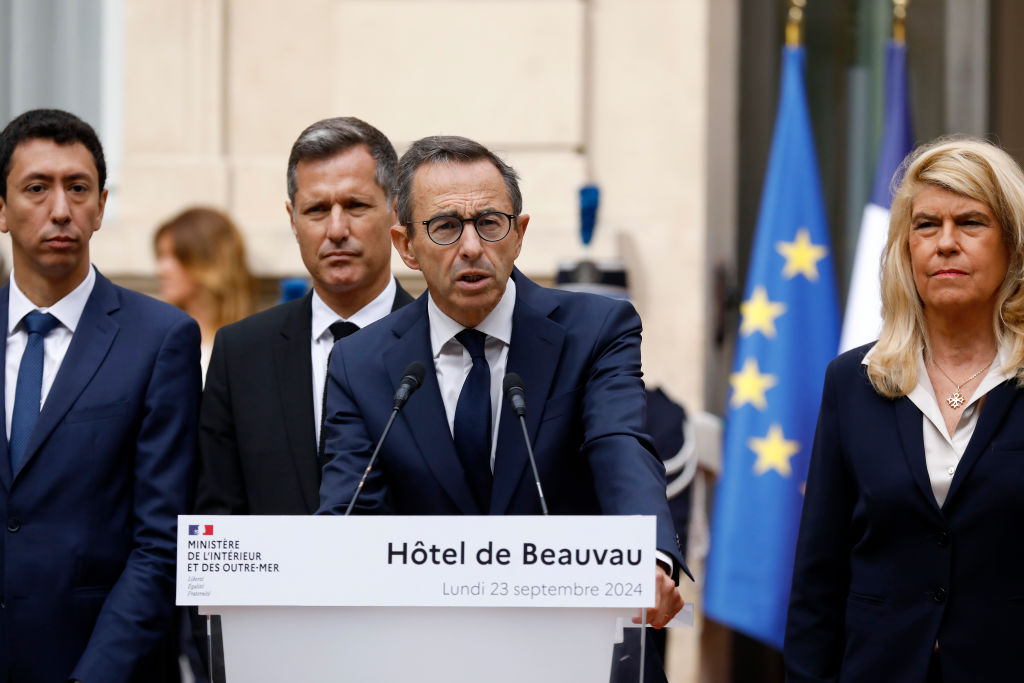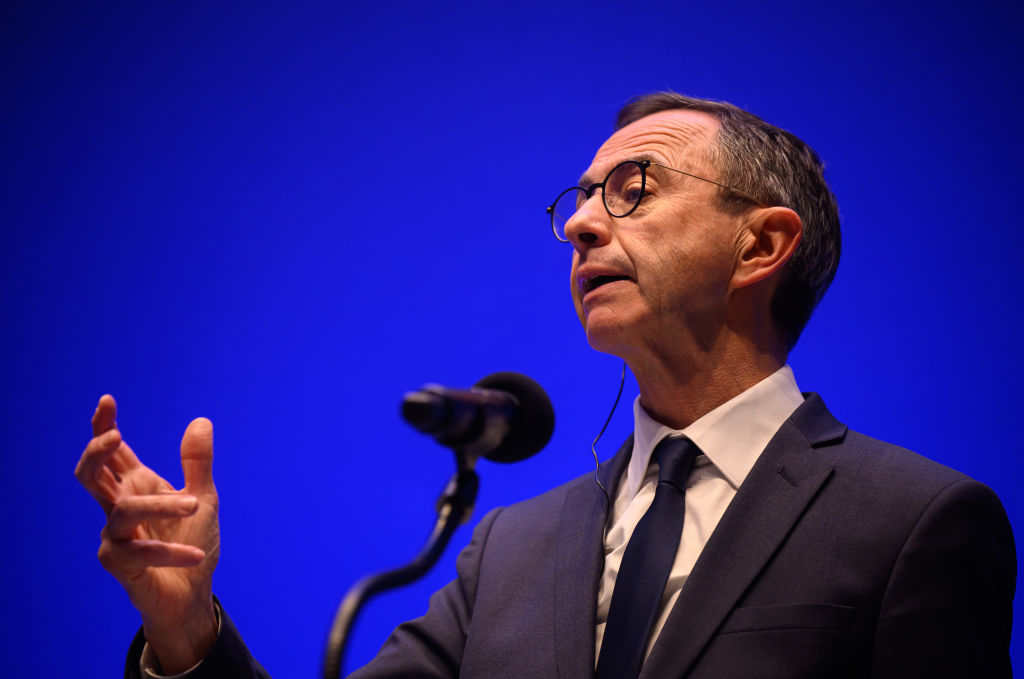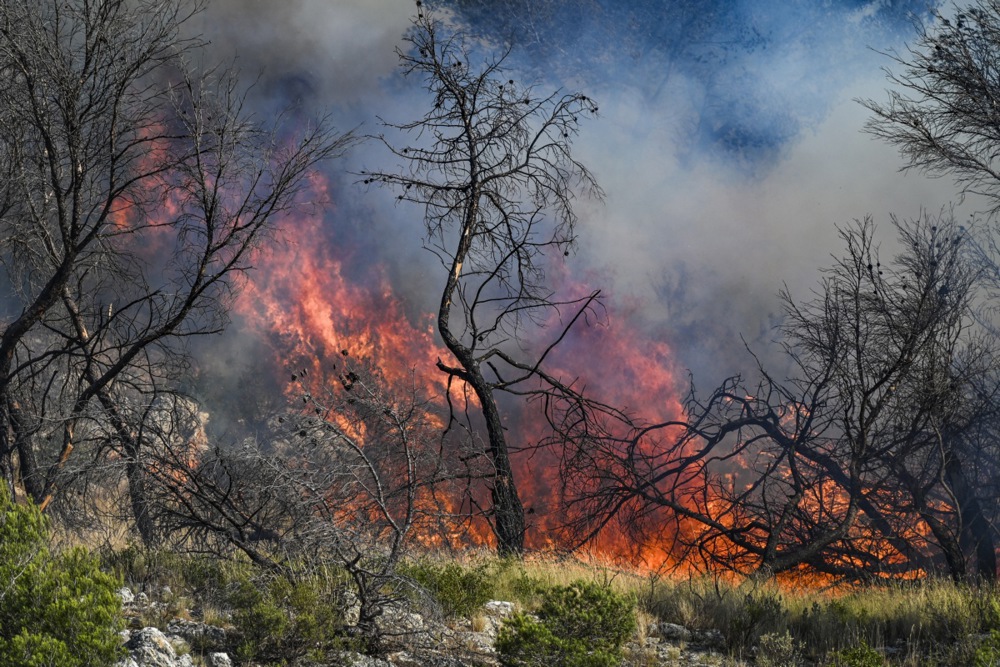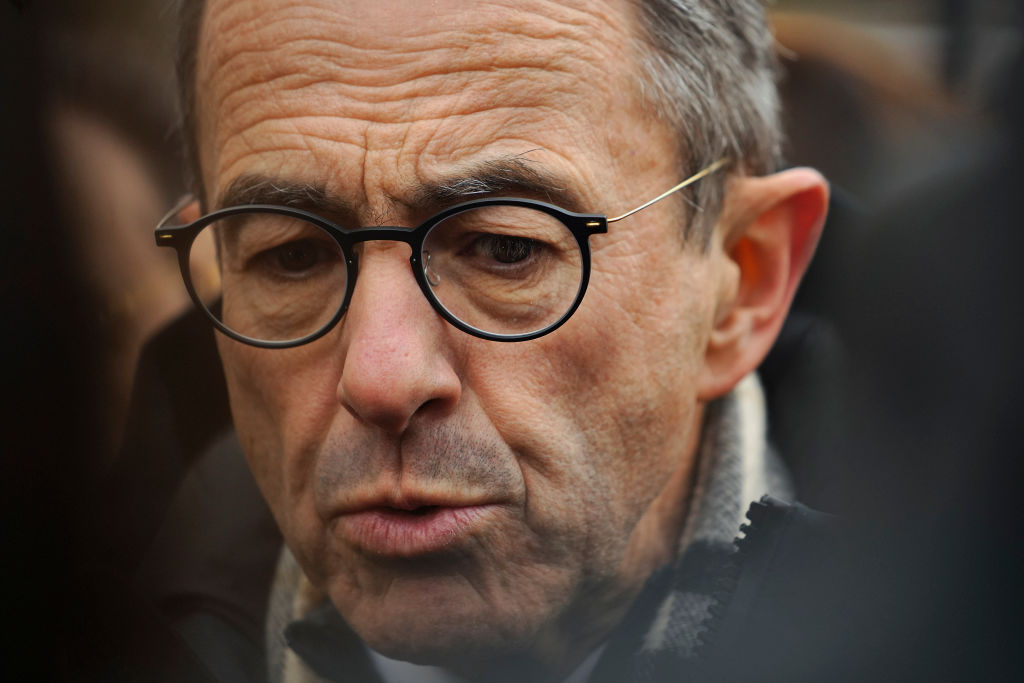French interior minister Bruno Retailleau has downplayed the likelihood of large-scale demonstrations during a nationwide strike planned for September 10, even as intelligence services warned of disruptive and possibly violent action across the country.
“This instruction to block everything is stupid,” said Retailleau said during a visit to Clermont-Ferrand, central France, today, casting the strike as both unnecessary and harmful.
“Blocking everything is worse than anything else. The country doesn’t need to be blocked. On the contrary, it needs to move forward,” he said.
While insisting he said he did not expect a mass mobilisation, Retailleau acknowledged that the strike could produce what he called “spectacular actions”.
The minister portrayed the strike initiative as a fringe movement “steered by the far Left”.
He accused the de facto leader of La France Insoumise (LFI) Jean-Luc Mélenchon and the labour unions of attempting to co-opt the protests.
“On the 10th, it is very clear that the movement has shifted to the Left,” he said.
France’s hard-left leader Jean-Luc Mélenchon calls for mass protests to topple Prime Minister François Bayrou’s government. https://t.co/wekF7DuHfD
— Brussels Signal (@brusselssignal) August 20, 2025
Retailleau said he had sent a directive to prefects across France urging them to take a firm line against attempts to block transport or damage government buildings.
“Strategic sites and vital infrastructure cannot, under any circumstances, be blocked,” he said he said.
The directive called for stepped-up security at symbolic institutions such as the National Assembly, the Senate and the Élysée Palace.
French intelligence services have warned that the protests could target train stations, refineries, motorways and speed cameras, as well as spark student-led protests.
“The images will not be pretty,” a police official yesterday told Agence France-Presse.
The call for a September 10 strike has been circulating since late July on social platform Telegram, urging workers to halt production and citizens to boycott commerce in an effort to “paralyse the country”.
The movement has gained backing from the General Confederation of Labour (CGT) and figures linked to the Yellow Vest protests of 2018.
On the Left, activists framed the strike as an opening toward broader social transformation, and calling for grassroots “self-organisation” through neighbourhood assemblies, strike funds and worker co-operatives.
Editor-in-chief of the anti-capitalist magazine Frustration, Nicolas Framont, suggested the protests could even spell the downfall of French President Emmanuel Macron.
“If the movement of September 10 achieves Macron’s departure, it will be an unprecedented victory of the people against the bourgeoisie,” he wrote on social media on September 3.
For Retailleau, the political stakes are high. As the minister responsible for maintaining public order, a breakdown in security could threaten his career and plans for next presidential election in France.
Following September 10, more demonstrations are already on the horizon.
On September 18, France is expected to see yet another wave of protests, this time organised by the trade unions, which issued their own calls for a nationwide strike against Prime Minister François Bayrou’s austerity plan.
The 74-year-old centrist is under pressure from Brussels to hatch a programme to stop France’s deficit and staggering debt levels.
He presented a €44 billion package of cuts that included scrapping two public holidays and freezing spending hikes.
Bayrou now faces a confidence vote on September 8, with both the Left and the National Rally declaring they will not back him.
He risks sharing the fate of his predecessor, Michel Barnier, who was forced out just months after his appointment when lawmakers from both the Right and Left united to topple the government in December 2024.
Should he lose, his entire government would likely fall. Macron would then face a choice: reappoint Bayrou, name his fifth prime minister since 2022, or call snap elections barely 14 months after the last.





